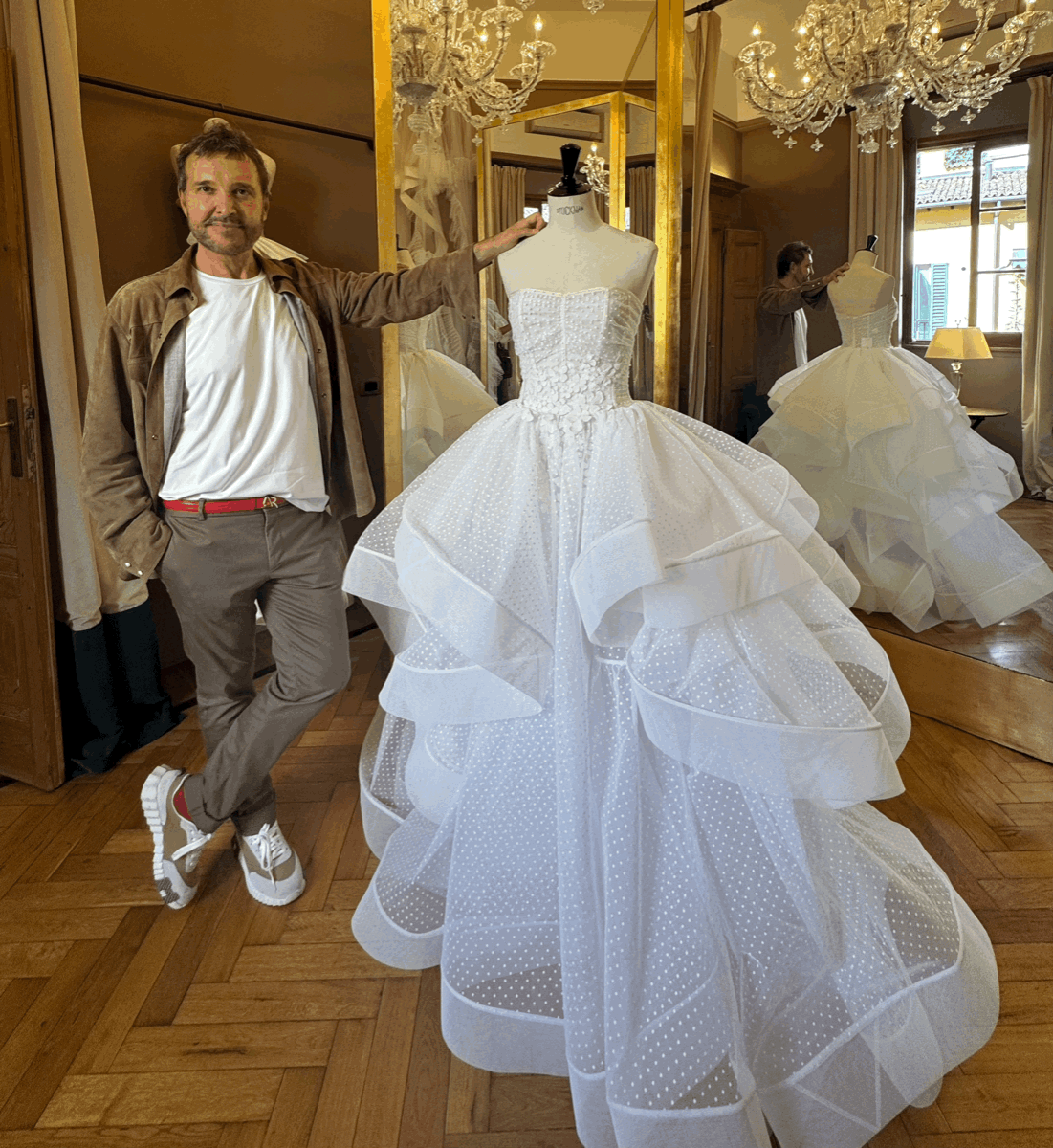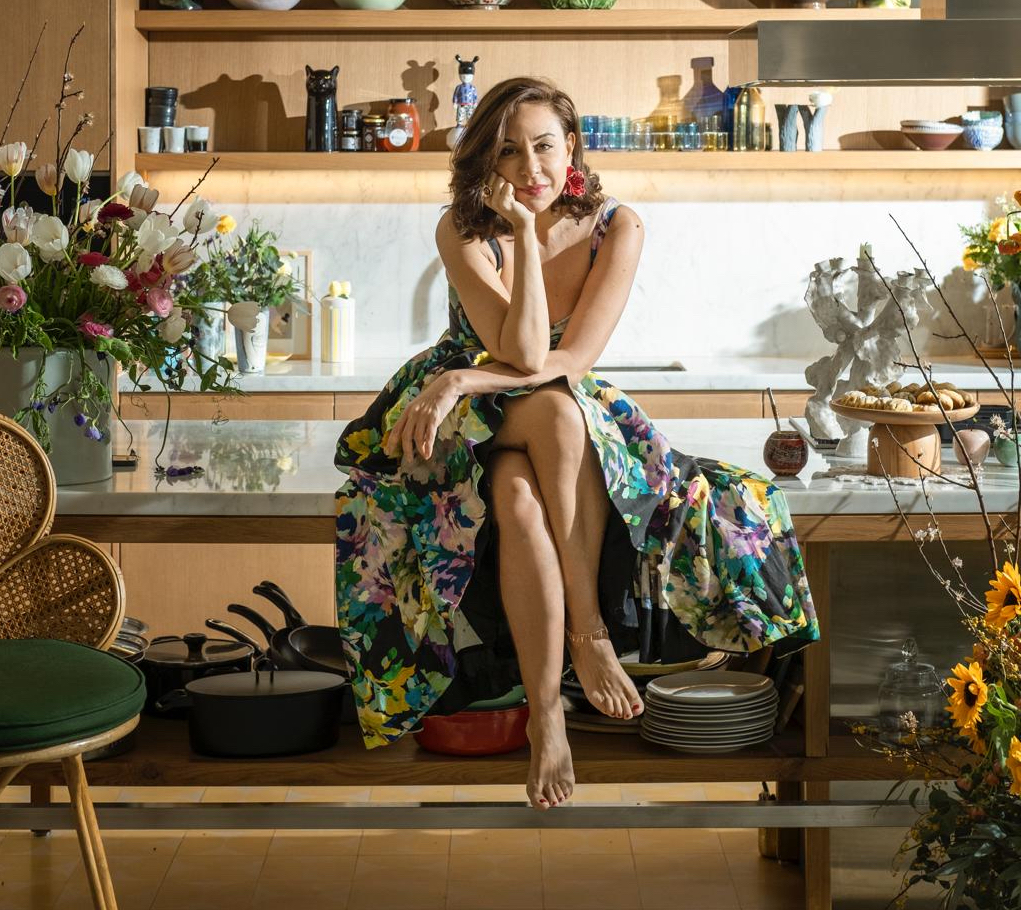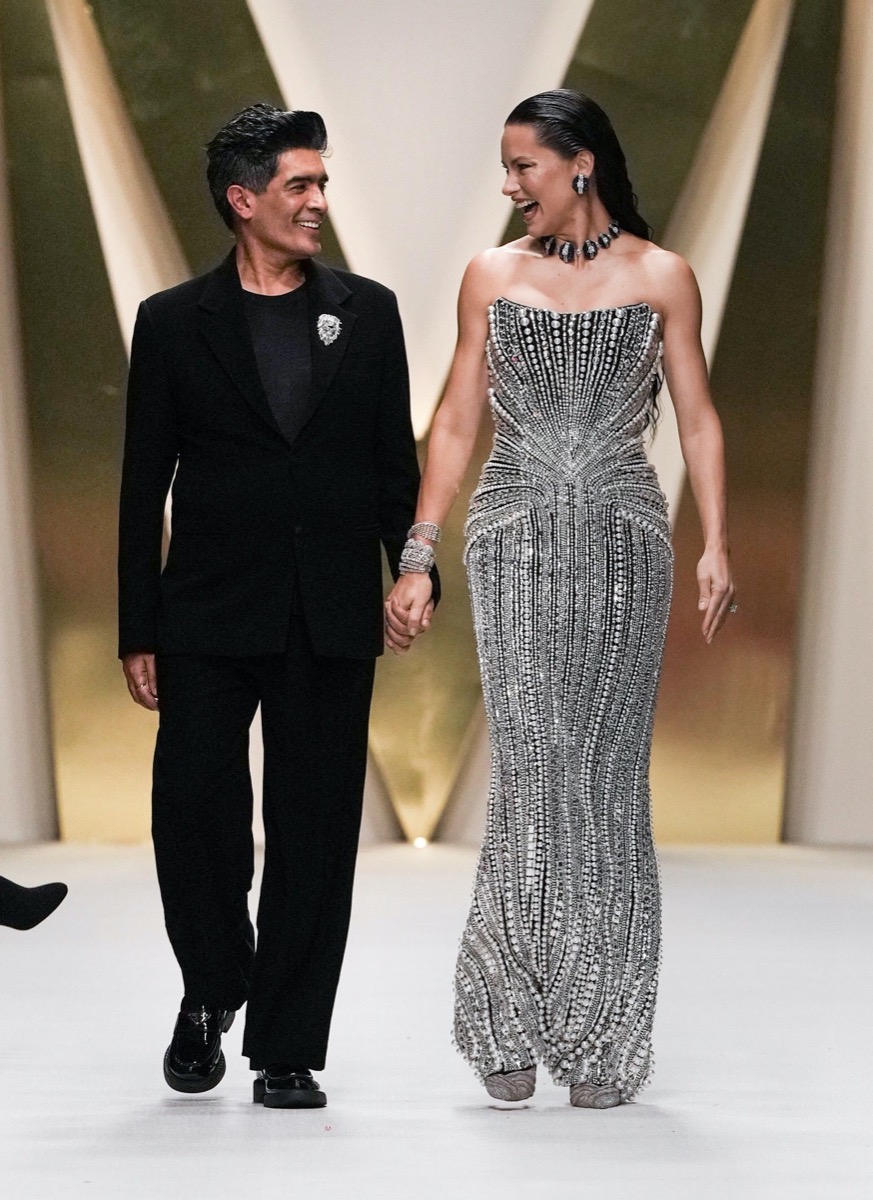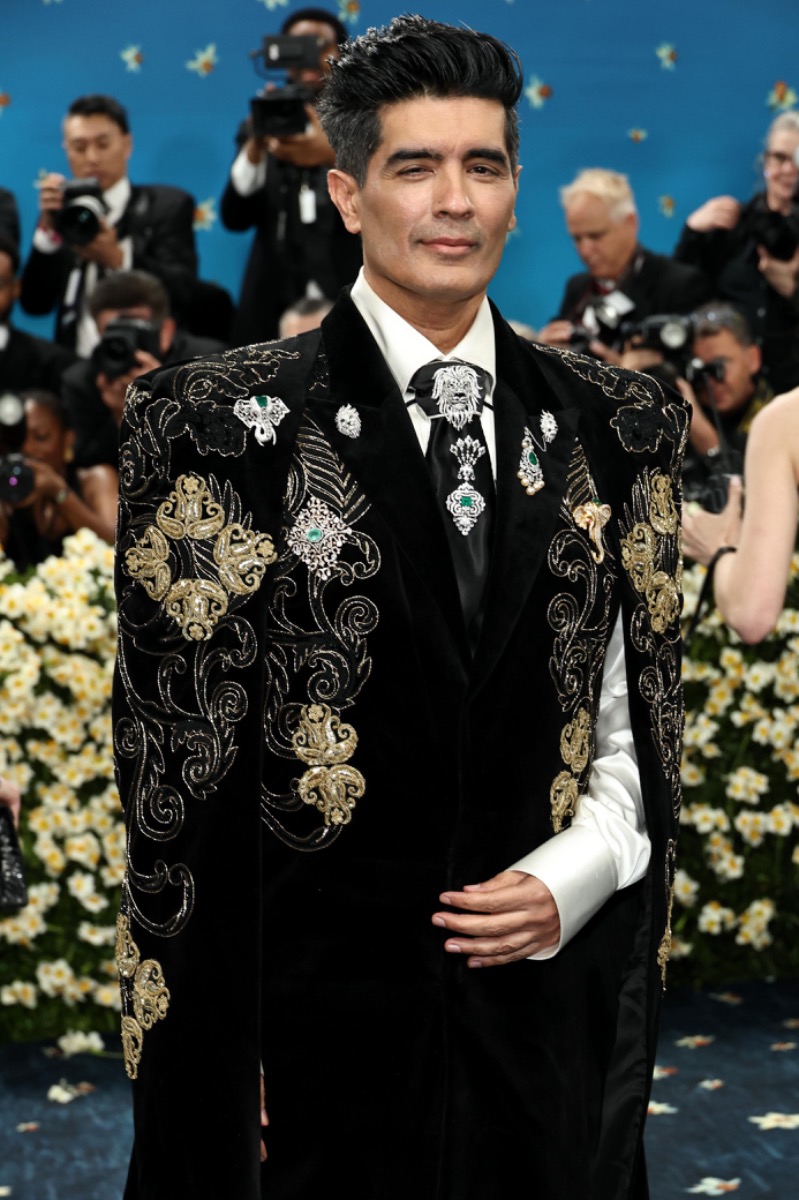Glamouria - When Fashion Meets Humanity… Antonio Gonzales By Hayat Ammouri
Glamouria

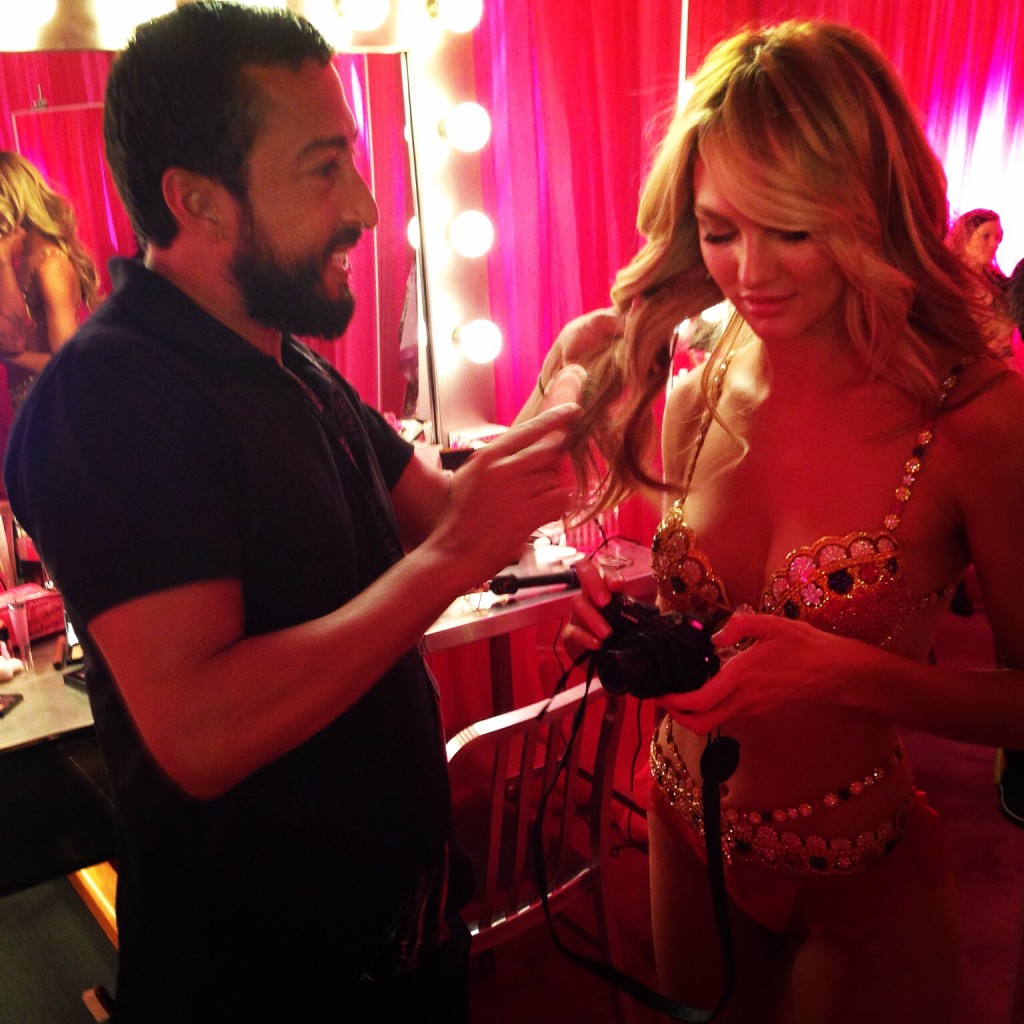
Successful hairstylist Antonio Francisco Gonzales worked on the Vicotria’s Secret Fashion Shows and participated at New York Fashion Week for many seasons. Over the years, he has worked in NYC, Germany & Trinidad. Allure featured him in Best Haircuts in NYC, and Vogue described him as a “rising star”. Antonio was also named Volunteer Of The Year by WIN (Women In Need). In this exclusive interview with Glamouria, Antonio talks about the time he spends away from runways and models, helping homeless women and girls around NYC.
To book an appointment with Antonio, Click here now.
Tell us more about you, what is your job, what is it that you do, and how and where did you grow up?
I’m 44 and I grew up in Trinidad and Tobago. I’m a hairstylist (cut/color) at Orlo Salon owned by Orlando Pita in the Meatpacking district. I love my job and the salon: It’s a very inspiring and humble environment.

How do you usually spend your day?
5 days a week I’m in the salon with a very creative team of friends thinking about what’s new in hair next year. Because of our heavy involvement in New York Fashion Week we are always a few steps ahead trend wise, and my clients love that.
When I’m not in the salon I’m helping in homeless shelters in New York City. In the summertime I make sandwiches and feed people on the street early in the morning.
And in between I enjoy running up 7 miles a day and I am a committed Bhakti yoga practice.
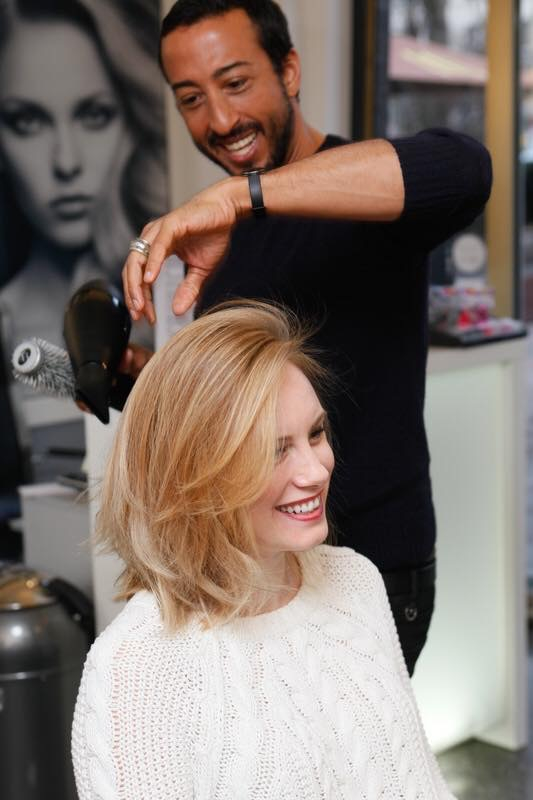
How did you get involved with homeless women?
I always loved helping and often thought of what these women were experiencing as they slept on the sidewalk.
After a long battle with depression I learned that I needed to focus on myself less and more on others.
One day I walked into W.I.N (women in need) one of New York’s biggest shelters and said “I’d like to help and how can I?” We had a conversation and I shared my vision on how I’d like to help, It has since evolved to way more than I ever imagined.
In 2014 I was their volunteer of the year, I was in shock. 3 years had passed and I had no clue the amount of families I had helped. And as result my depression was gone.
Why is it important to you?
Having grown up with a single mother and 2 sisters I know first hand the challenges women face.
By the time a woman becomes homeless she’s emotionally broken. She has lost her sense of self, she’s full of fear and feels lonely. As a human being, I sincerely believe that helping the homeless is a way for me of saying thank you to the universe for life.
How do you help them?
I believe that beauty is an inside job. Yes I can go and give them a hairstyle or a haircut. However the trouble they face is so much deeper. So I do makeovers from the inside out.
I conduct workshops on individuality, which is something most women struggle with (not only in shelters). We talk about the power of self love and what they each bring to the world on many levels. I’m lucky that I win their trust quickly, which then allows us to talk about the real issues like the abuse they have experienced and how they can fight being the victim. One of my workshops is actually called “From Victimization to Victory“. With my workshops I often give a small gift such as bags full of toiletries etc.
I also host fashion parties. I collect used clothing, then get together with a team of friends and we put together outfits and take them to the shelter already sized. We then pretend we are fashion stylists and assist the women in choosing clothing (4 at a time). I generally get the event catered.
How do things work at the shelter?
I’m really now learning more about shelters and their function. So far I’ve learned that the government run shelters have a full system in place. Before you get into a shelter you are appointed a case worker to help get you the appropriate help. You are given a full medical check up, and they access the situation as to how women got there. The family might be contacted to see if they can offer help.
Once they have proven to be homeless they are then put into categories (not officially) Women with children, the mentally ill, women that are HIV positive or terminal illness, and then women who don’t fit the above categories. The first three groups are priority, they generally are first in line for temporary housing.
Then there are private shelters that get some government assistance (maybe property), funding, grants or private donors. These may be better run with better facilities and a much higher success rate in getting women back on their feet. Because it’s private the staff is better managed and the clients (the homeless) are more respected.
Then there are rest pits. The churches in NYC opened their doors to the homeless to ease the over flow at shelters. The DHS provide beds, linen and some financial support to the churches. In return, 4 days a week the clients that cannot get a bed at their regular shelter (which is very often) will be bussed to the rest pit nightly. There they are given a bed and a meal. The only catch is every morning they have to pack up and head back to their main shelter. Then once again if they can’t get a bed, they are bussed to the church again. It’s very stressful for women, but if they want a bed they have to comply. Again these women don’t have young children, severe physical illness or obvious mental illness. So they are basically at the bottom of the food chain in the shelter system.
Where do these women usually come from?
We have women that are victims of domestic violence. Families that are not making enough money to support their children. Women suffering from mental illnesses. Or an everyday occurrence like not saving for a rainy day and having to give up your apartment.
What do you think they all have in common?
Although they all come from different classes, different skin color and nationality etc. Self love is absent. As a result, seeking approval and love from the outside leaves them very vulnerable. Material things, unhealthy relationships, chaotic family situations, anything on the outside becomes priority. This leaves people basically empty. Now we are all different, so this affects people differently.
This is a problem I see spreading across our community, not only in shelters.
What’s the worst thing that could happen to them?
If they decide to spend a few days on the street. What society is unaware of is that most people on the street thought it was going to be temporary. After some time their sense of reality starts changing. Their sense of smell (they can’t smell themselves), their sense of taste (spoilt good becomes an option), and of course, what is left of self love vanish. Not to mention the abuse from passers by and from other homeless people trying to survive. If they are on the streets for too long they become delusional. An attempt to finally get into a shelter is disastrous. They are now watched closely, have a curfew and are being controlled. To us this may not make sense, but their sense of freedom is taken away.
Sadly mental illness is also a huge reason people choose the streets. Keep in mind it could have started as depression, then combine that with abuse, or loosing a job, it could push some over the edge.
What’s the best thing that could happen to them?
Volunteers coming forward and helping. Showing up for their fellow humans, physically and emotionally. It changes lives. As the homeless situation increases, the government is unable to give the help needed. There is a myth going around, if you see a homeless person you should look them in the eye. It gives them a sense of acknowledgement, that you see them. Well I’ve been doing this for 5 years, and all that does is heighten their insecurity.
Did any story in particular touch your heart?
I met a woman who called herself Miss. She was in foster care as a child. After her foster parents died there was a fight amongst the family for money. Miss ran away. She had been running for 20 years and refuses to go to a shelter because they will contact her family, so she stays on the street. One day we met and she was with a friend, Sandra. I asked Sandra how long she has been homeless, she replied: Since arriving to NYC, 40 years ago.
Then recently I conducted a workshop for women in a job placement program. One woman was so broken. Her mother and her never got along; her mother never said “I love you” or hugged her. Only minutes before her mother died, she told her daughter she was proud of her. She longed to hear those words for so long that it devastated her it only happened then. Now she has grown children and is unable to hug them. Their is a mental block and she’s heartbroken, as she explained she cried and cried..
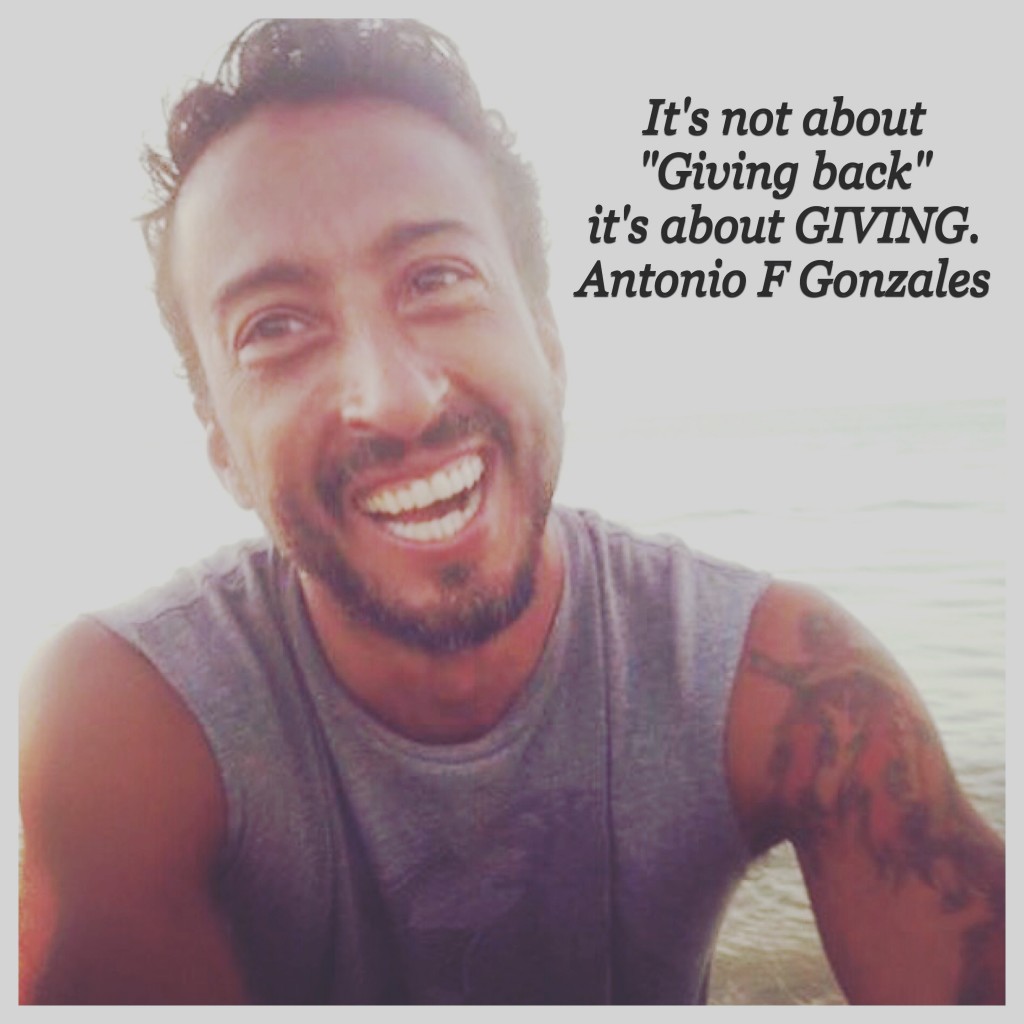
How can we help?
The women in the shelters I work with are ecstatic when they hear they are not alone. Words can’t describe the amazing feeling of seeing a smile on a woman’s face when they receive support. I’ve seen it on many occasions with my own eyes!
I would suggest emailing me directly and we can discuss the group you would like to help. If its financial donation, it will go directly to a fund in the shelter’s name, for me to use towards the ladies. If it’s clothing items, gift cards, food or toiletries, I will provide an address and the guidelines. I can guarantee you that all donations go directly to the ladies, because I deliver them personally. If you would like to give of your time, you can join me when I visit shelters or do my workshops at the job placement shelters.
For more on Antonio, check his website here. To contact him directly, please send your email at: Antoniofranciscogonzales@gmail.com

